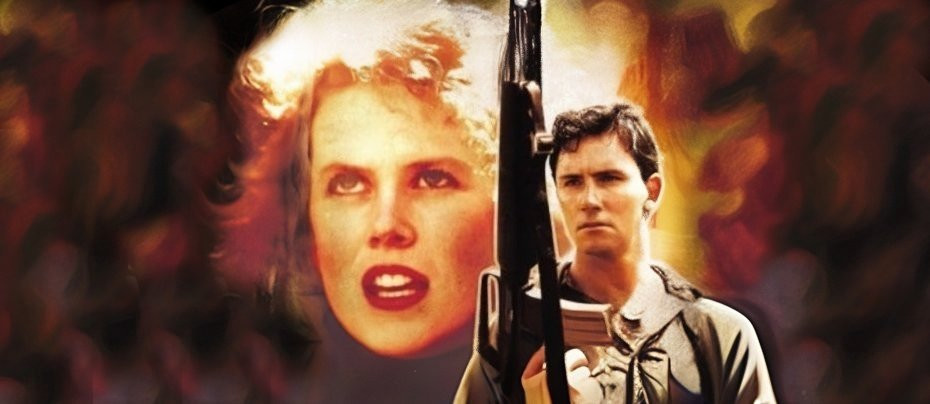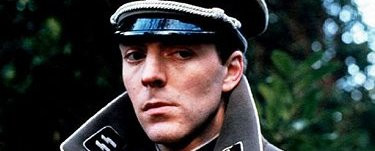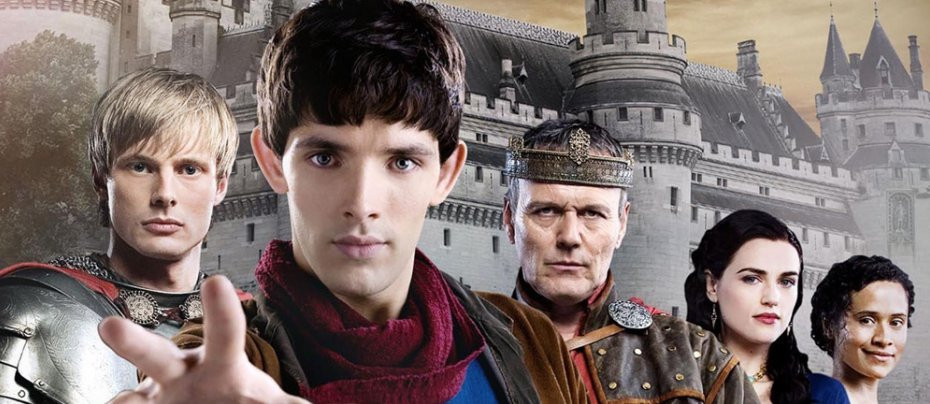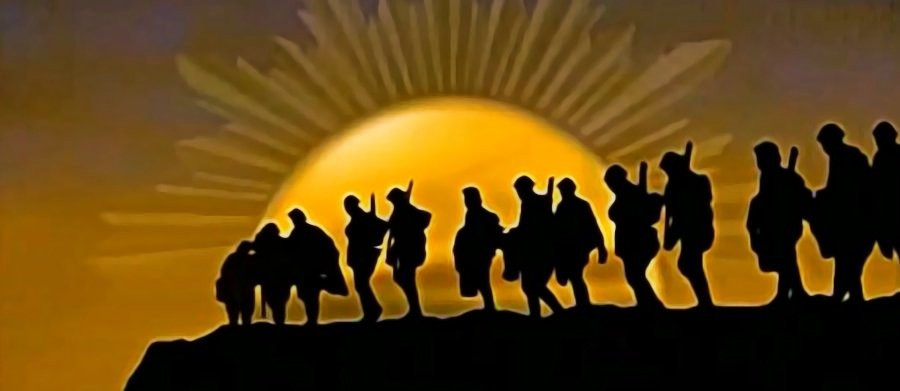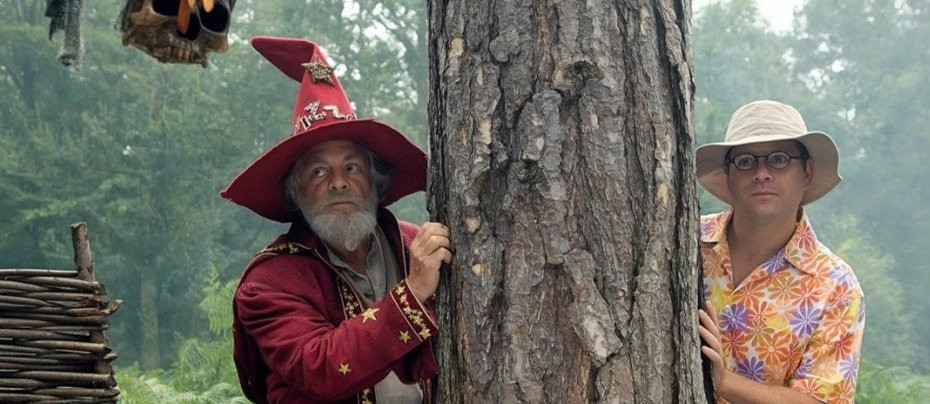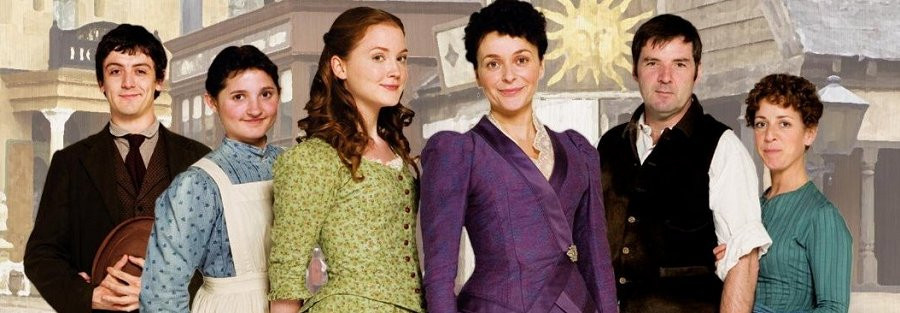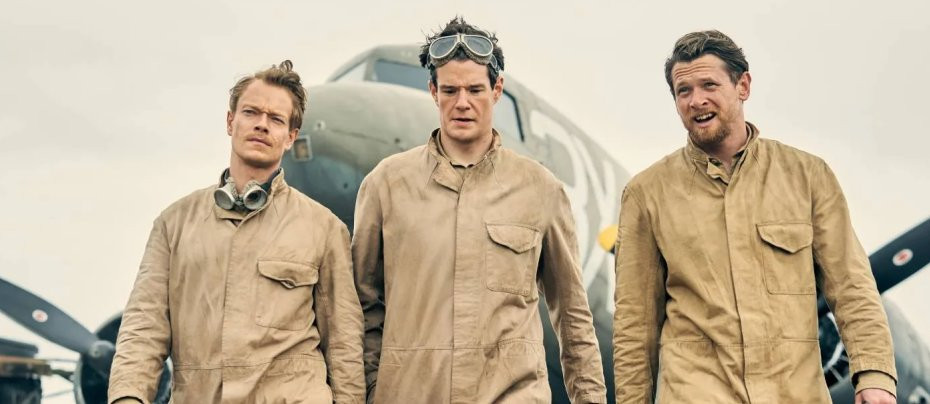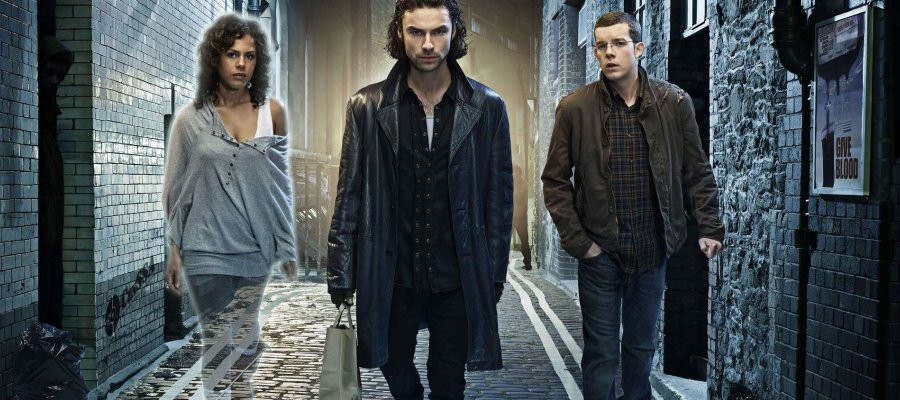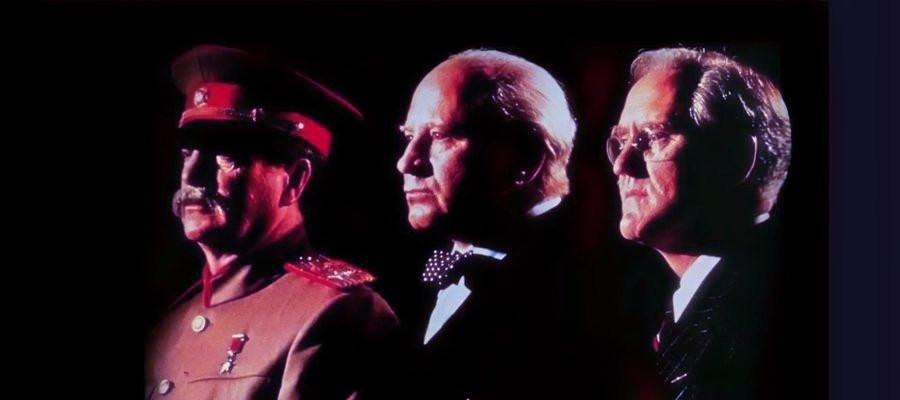
Generation Kill
2008 - United StatesReview – John Winterson Richards
As might be expected from the writers of The Wire and of the book on which Homicide: Life on the Street was based, David Simon and Ed Burns, Generation Kill is authenticity stamped all the way through. It is a dramatisation of the true life story of the 1st Reconnaissance Battalion of the US Marine Corps during what must now be termed the first stage of the Iraq War in 2003. It is apparently popular among serving Marines themselves, who often quote it in much the same way Marines who served in the First Gulf War and the 2003 Campaign quote the film 'Full Metal Jacket.' Again, reality becomes an image and the image becomes part of reality.
In all the controversy surrounding the War, it is often forgotten that this first stage, the actual invasion and conquest of Iraq, and the removal of the Arab Socialist Ba'ath Party regime of Saddam Hussein, was, in purely military terms, an astonishing success. In just over five weeks, American and Allied troops defeated the Iraqi Army, took over the country, and turned Saddam from an all powerful Dictator into a hunted outlaw.
Many may remember "Comical Ali," Saddam's Minister of Information, ranting about how the Americans were being repelled just as US tanks appeared in the background behind him. If the Americans had simply declared victory at that point and left, history, or at least the perception of history in the West, might have been very different - or perhaps not. Who knows? Anyway, this is a television review not an essay on grand strategy.
What matters for the purpose of this review is that, as we all know now, and some predicted at the time, it was after their spectacular victory that their real problems began.

Based on the true life account of Evan Wright, a journalist "embedded" with the US Marines during that initial campaign, Generation Kill is about the spectacular victory rather than about what came after, but it also shows the conceptual flaws in the occupation of a troubled country and the seeds of the future difficulties that were there from the start.
In particular, it is very clear that pumped up young men, many of them not very well educated, who are trained to do one thing and one thing only - apply massive firepower for the purposes of physical destruction - and who prove to be very good at it, are not necessarily the best people to deal with the complexities of an ancient civilisation with a number of conflicting cultures.
Their instinctive reaction to any uncertain situation, reinforced by training, is to shoot at it. This is shown very graphically in Generation Kill. One can imagine how that might undermine any gratitude the Iraqi people might have felt at their liberation from Saddam.
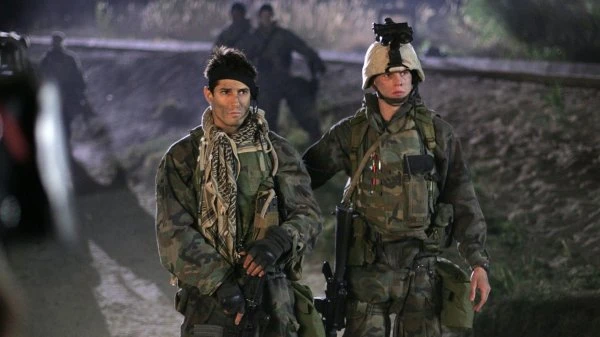
This is the main theme of Generation Kill, but its great strength is that it sticks to the facts, as reported, and does not try to force a political agenda down anyone's throat. It treats the soldiers very sympathetically, and in this sense cannot be called anti-American. Everything is seen from the Marines' point of view.
The practice of "embedding" journalists with front line troops is itself controversial. They get access and authenticity they could not get any other way, but it comes at a price of a certain loss of objectivity.
Curiously, Wright is employed by 'Rolling Stone' magazine, not just exactly famous for its geopolitical insight. One cannot help thinking of Cameron Crowe's autobiographical film 'Almost Famous,' which is about a much younger 'Rolling Stone' journalist similarly "embedded" but with a rock music band. In the film, the young reporter's mentor warns him against getting too close to the band and liking them too much to report fairly. Of course that is exactly what he ends up doing, and the older, more experienced Wright does the same in Generation Kill.

The soldiers with whom he rides - and one in particular - become like rock stars to the writer, despite him being older than all of them. For their part, the soldiers seem to have been amused, but not displeased, at the thought of being immortalised by a rock journalist. Some seem to have played up to that and become unusually quotable. Again, one thinks of a line in 'Almost Famous' when a musician begs the writer "Just make us look cool" - which he does. So does Wright, as played by Lee Tergesen.
The emphasis on character is perhaps necessary to make up for a certain deficiency of plot. The nature of the 2003 Campaign meant that it had little in the way of tension. The result was all but a foregone conclusion. That might have been different if Saddam had indeed possessed the weapons of mass destruction that were one of the official pretexts for the War, but it soon became obvious that he did not - which, interesting to note, seems to have been the general assumption by the men doing the actual fighting and planning in the Campaign.
As it was, there were no great pitched battles in which everything hung in the balance, or dramatic last stands against overwhelming odds, at least not on the American side. Instead, we get of bunch of generally agreeable twentysomething guys on an extended road trip with heavy calibre weapons.
The Recon Marines, as their name suggests, are at the very front of a huge armoured column, the point of the spear. They are an elite of an elite, trained to keep moving.
If they get into serious trouble, they know they can call upon almost limitless fire support. This is what is usually meant by engaging with the local population in Generation Kill. There is no serious effort to win "hearts and minds," or even think about them much. The Marines themselves are sometimes forced to wonder if this is necessarily the best way to proceed.

The greatest challenges come not from the official enemy but from management issues - organisation, command and control, and logistics. This is a fundamental truth about all military history: the actual fighting matters less than the ability to get the necessary troops to the right place at the right time in the right order and keep them fed. Napoleon won all his battles in Russia in 1812 but could not stop his army falling apart. This truth takes on even greater significance in modern "asymmetric" warfare which relies on ever more complicated systems. In Generation Kill we see how the loss of a single supply truck has considerable consequences for the combat soldiers.
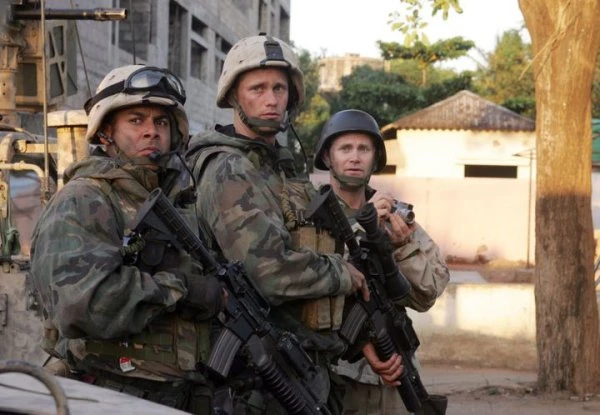
We also see another eternal truth about war - Homer mentions it in 'The Iliad' - that the actual fighting is only part of it. It is not just the combat but the alternation between relatively short bursts of extreme activity and long periods of inactivity - "Hurry up and wait" - that is bound to test the strongest nerves. In Generation Kill, there is a lot of hanging around doing nothing with no idea what is going on. That seems to be true of most soldiers' experience of most campaigns. Those may be the most testing times: there is little opportunity for reflection in a firefight, but prolonged boredom forces even the bravest of men to dwell on their private fears. At such times the soldiers' banter takes on a certain brittle quality.
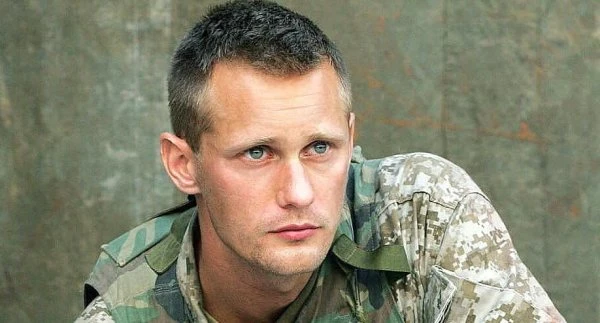
The exception appears to be Staff Sergeant Brad Colbert, known as "Iceman." As played, in a career making performance, and with a perfect accent, by the Swedish actor Alexander Skarsgard of the Skarsgard dynasty - the great Stellan is his father and Gustaf from Vikings is one of his brothers - he seems, on the surface, to be the ultimate warrior. Cool in combat to the point of frosty - an important word in Generation Kill - he always seems to know exactly what to do under pressure. He exudes such confidence and calm that those around him are infected. He is the epitome of the man you want with you when your life is on the line. It is a case study in leadership that ought to be compulsory viewing in military academies, along with Daniel J Travanti's Captain Frank Furillo in Hill Street Blues.
Yet, contrary to Hollywood tradition, Colbert as presented to us can be a fairly talkative hero, and not all that he says makes sense. As with many legendary fighting men, one wonders if he would seem as impressive in any other situation.
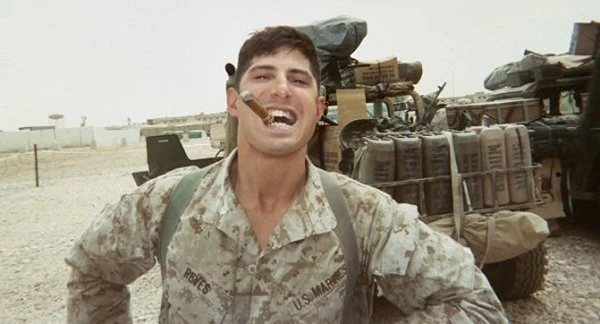
Skarsgard is so memorable that the rest of the cast are somewhat overshadowed. This is unjust because, as a group, they are totally convincing - especially Marine Sergeant turned actor Rudy Reyes, which is to be expected since he is playing himself. Eric Kocher, who was also a Sergeant in First Recon, plays a different character altogether while another actor portrays him.
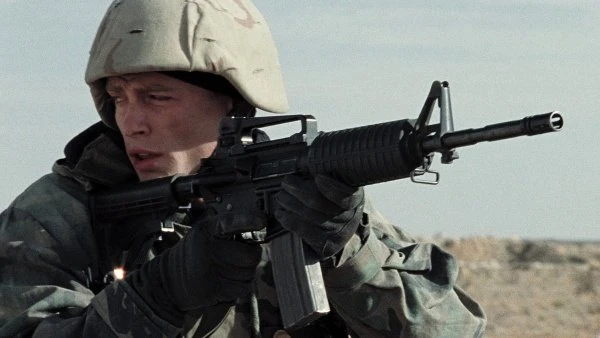
An additional layer of authenticity comes from the fact that Kocher and Reyes organised a "boot camp" for the other actors playing Marines, so that they learned to carry themselves like soldiers. On top of that, the cast seem to have bonded much like a military unit in the course of a long shoot on location together in Namibia, Mozambique, and South Africa - which together stand in surprisingly well for the war torn Middle East. The production departments excelled in getting every tiny detail right, including how a Marine lieutenant carries his map pens.
The result is one of the most credible evocations of the reality of war ever produced, in any medium, and a truly classy piece of television.
About the writer of this review:
John Winterson Richards is the author of the 'Xenophobe's Guide to the Welsh' and the 'Bluffer's Guide to Small Business,' both of which have been reprinted more than twenty times in English and translated into several other languages. He was editor of the latest Bluffer's Guide to Management and, as a freelance writer, has had over 500 commissioned articles published.
He is also the author of ‘How to Build Your Own Pyramid: A Practical Guide to Organisational Structures' and co-author of 'The Context of Christ: the History and Politics of Rome and Judea, 100 BC - 33 AD,' as well as the author of several novels under the name Charles Cromwell, all of which can be downloaded from Amazon. John has also written over 100 reviews for Television Heaven.
John's Website can be found by clicking here: John Winterson Richards
Seen this show? How do you rate it?
Seen this show? How do you rate it?
Published on August 29th, 2020. Written by John Winterson Richards for Television Heaven.


